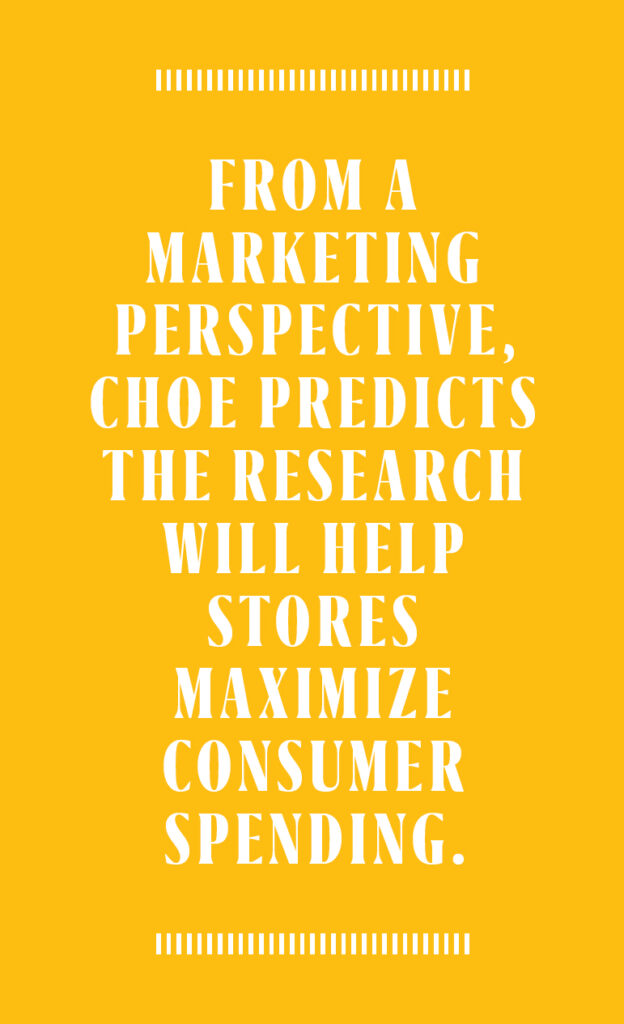Where Two Budgets Diverge
By Anna Mitchael
At first glance, it’s easy to think all budgets are created equal, and a budget of $100 means a consumer will spend $100 on a purchase. Yuna Choe, PhD, assistant professor in Marketing at the Hankamer School of Business, suspected budgets might be more complex than that. Choe hypothesized that when consumers budget a purchase for others, they actually feel differently about the budget than when budgeting a purchase for themselves.
To see if this hypothesis was correct, Choe, along with Christina Kan from the University of Connecticut and Evan Polman from the University of Wisconsin-Madison, conducted the research “Divergent Effects of Budgeting for Gifts versus Personal Purchases,” which was published in Journal of Consumer Research. The study found that when shopping for themselves, consumers feel good about being under budget and having money left over as they perceive personal budgets as spending amounts that are preferably minimized. However, when shopping for others, they want to use every dollar they initially planned to spend as gift budgets are perceived as spending amounts that are preferably maximized.
“Let’s say you have moved into a new house and you want to buy something for your kitchen,” Choe said. “If you have a $100 budget and you find an item for $80, you will likely feel great about the purchase. However, if you have a $100 budget for a gift for someone else’s housewarming present and you find an $80 item, you are more likely to either look for another item that is the full $100 or add extra items to maximize the budget.”
Choe, Kan and Polman speculated a few reasons why this phenomenon happens. People are likely to spend more of gift budgets because they feel less focused on saving money when shopping for others. As another reason, consumers may become less price-conscious for gift purchases and wish to choose something that meets the amount initially planned. It is also reasonable to predict people maximize their budget for gifts because they experience feelings of guilt; when consumers decide to spend $100 for others, they may feel guilty when money is left unspent. Lastly, gifts are often purchased on special occasions and are considered more special than personal purchases. That could also be a reason why they maximize their budgets.
To focus on this phenomenon, the researchers used a variety of research methods including surveys, lab experiments and a field experiment to explore the feelings and behaviors of consumers. The researchers concluded that maximizing budgets for gifts rather than personal shopping happens primarily because people feel less focused on saving money.
While working on the research, Choe found it surprising no other studies had been done on this topic. When she would anecdotally mention the research and findings to people, they would often contribute anecdotes from their own experiences. It seemed many people resonated with this spending pattern.
From a marketing perspective, Choe predicts the research will help stores maximize consumer spending. For example, if salespeople are trained to inquire about someone’s budget when they are shopping for gifts, they could suggest additional items that maximize the top amount. Additionally, because consumers typically set budgets that are round numbers, such as $50 or $100, offering suggested gifts under $50 or gifts under $100 could be an effective marketing strategy.
In the future, Choe hopes to explore other factors that influence consumer shopping decisions to help increase overall consumer satisfaction.



